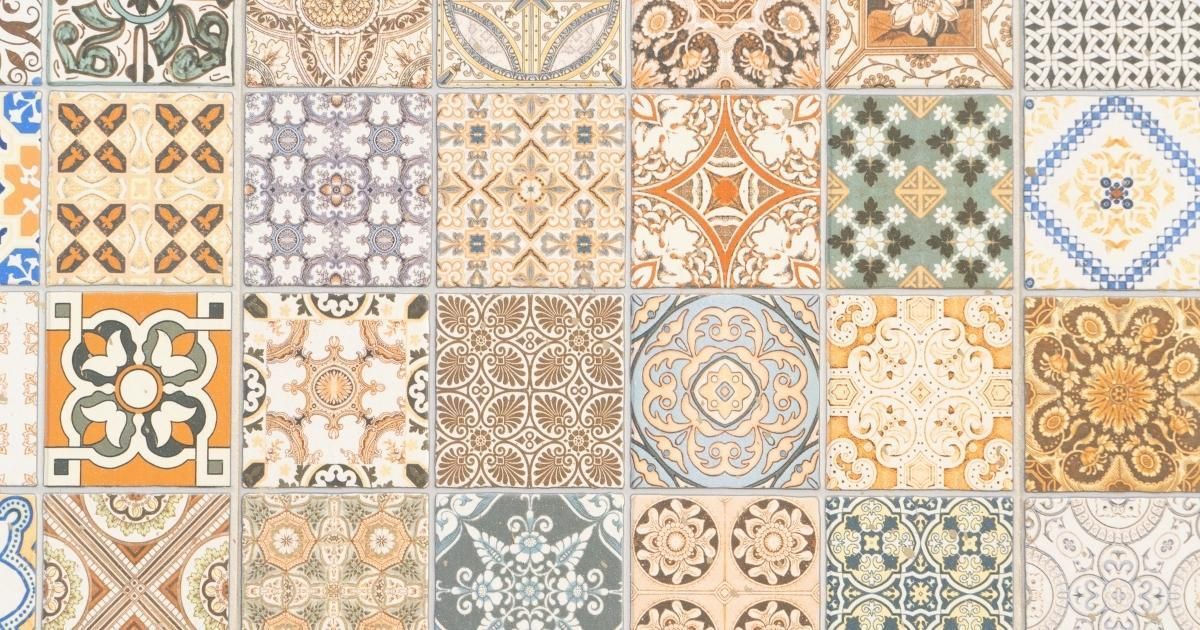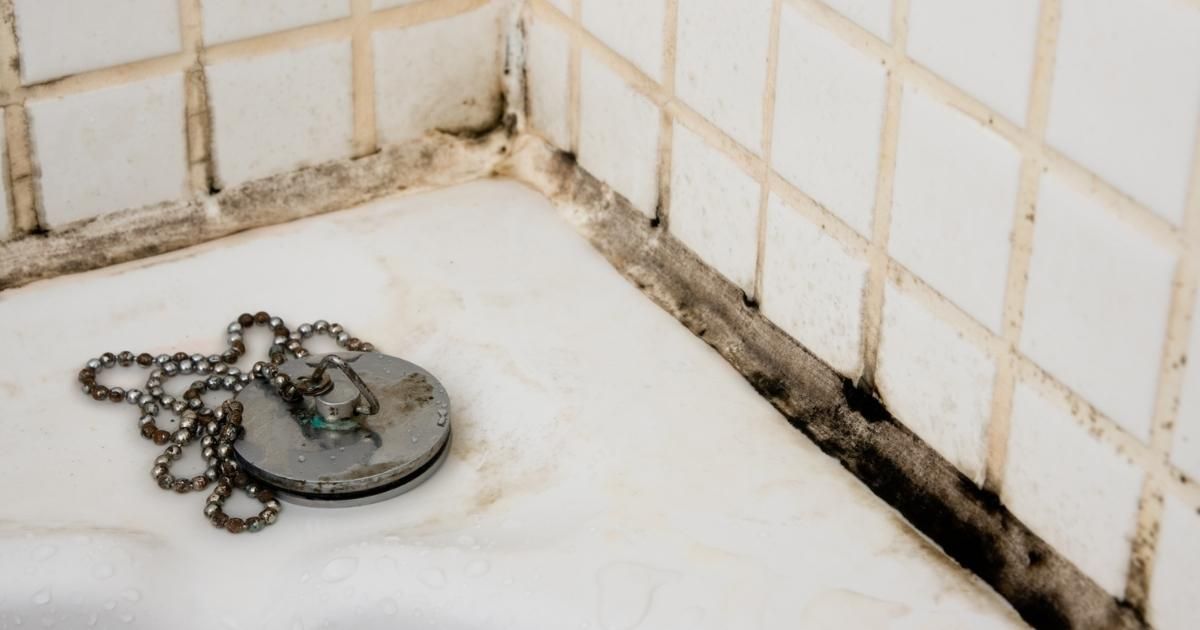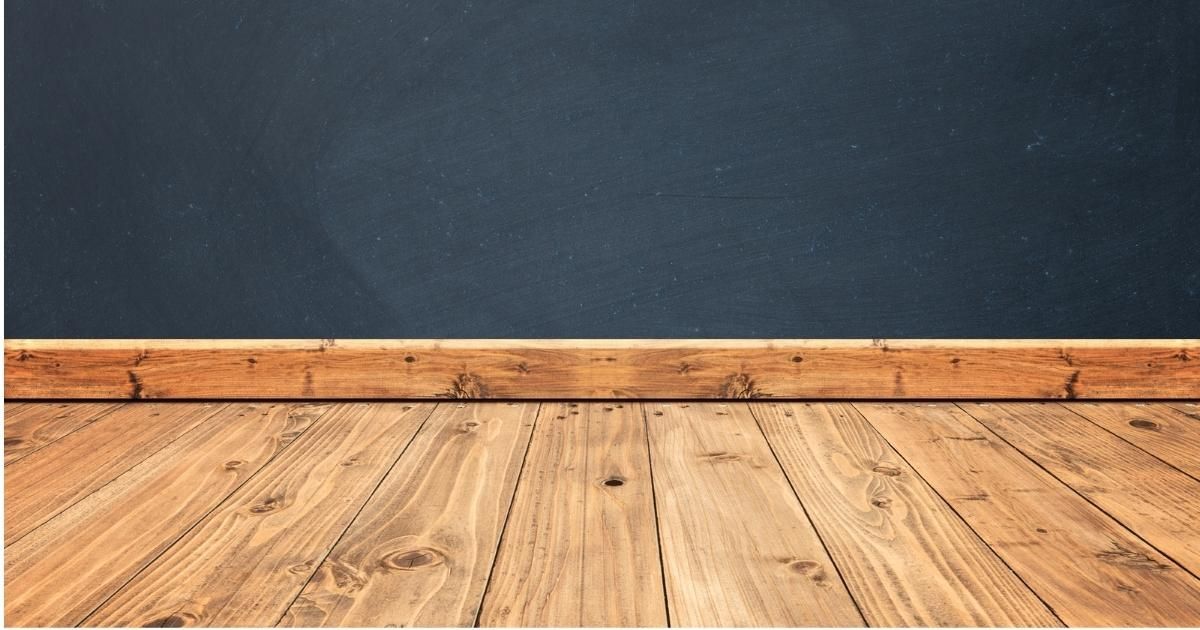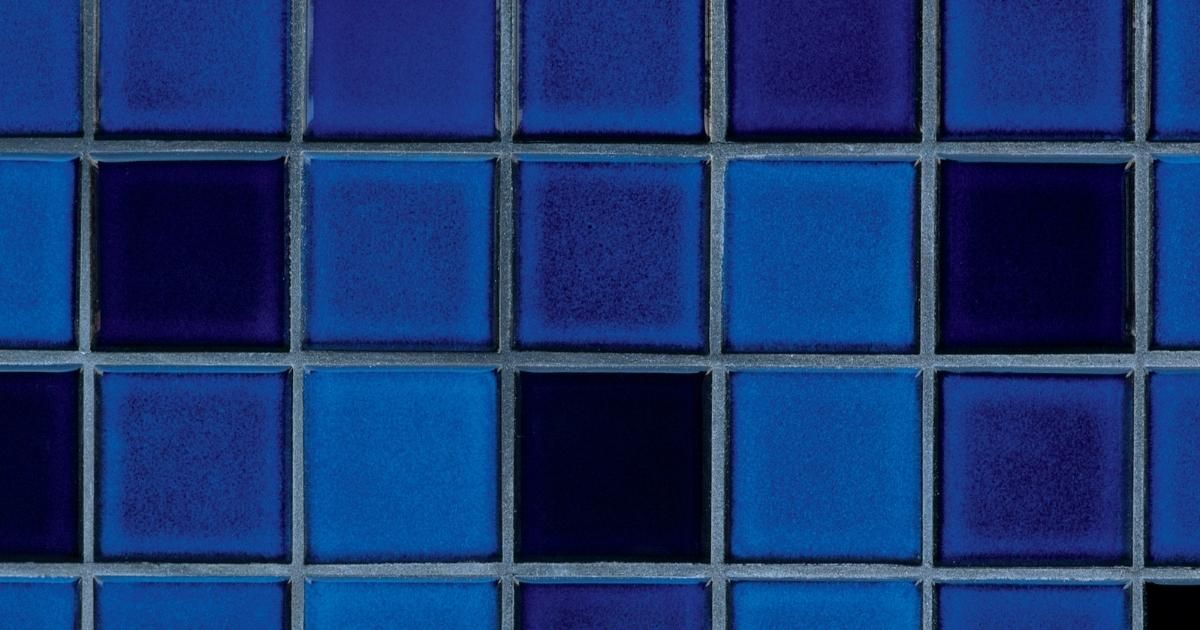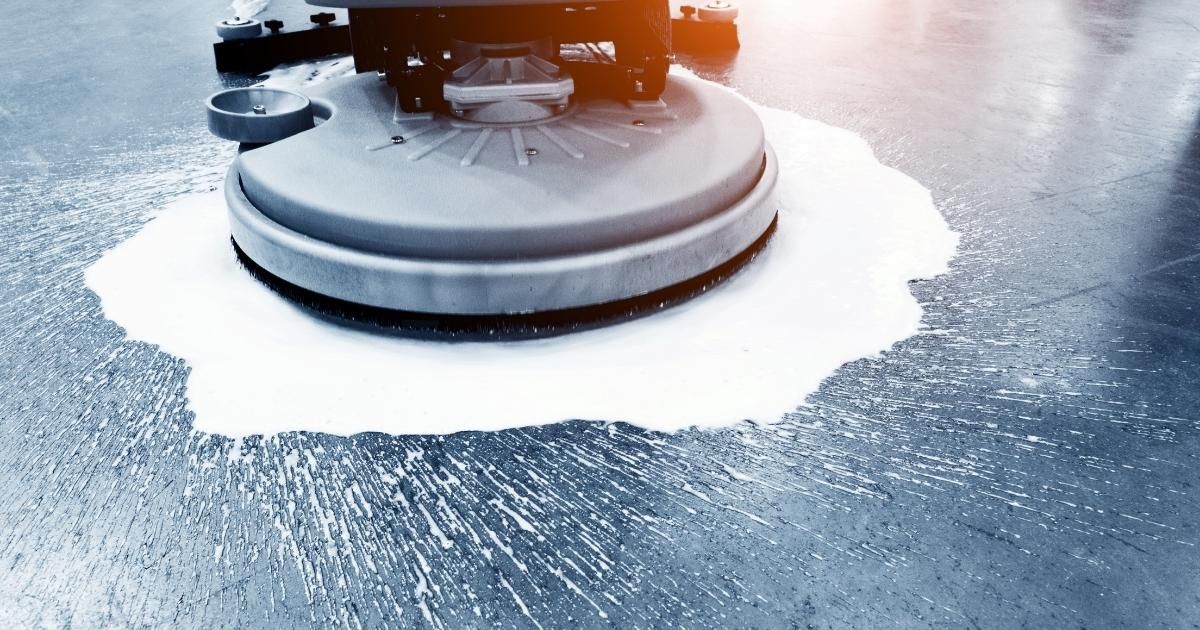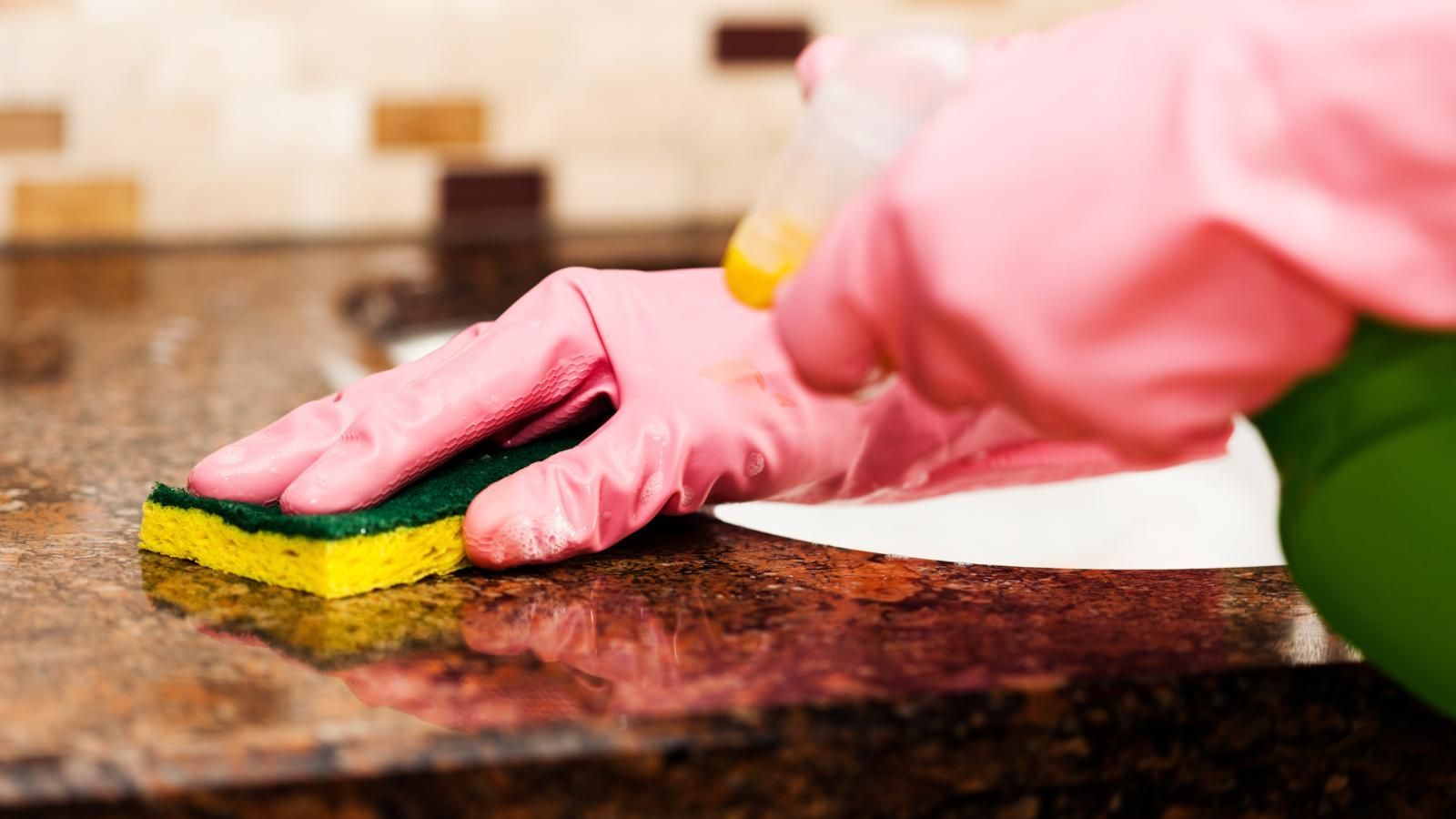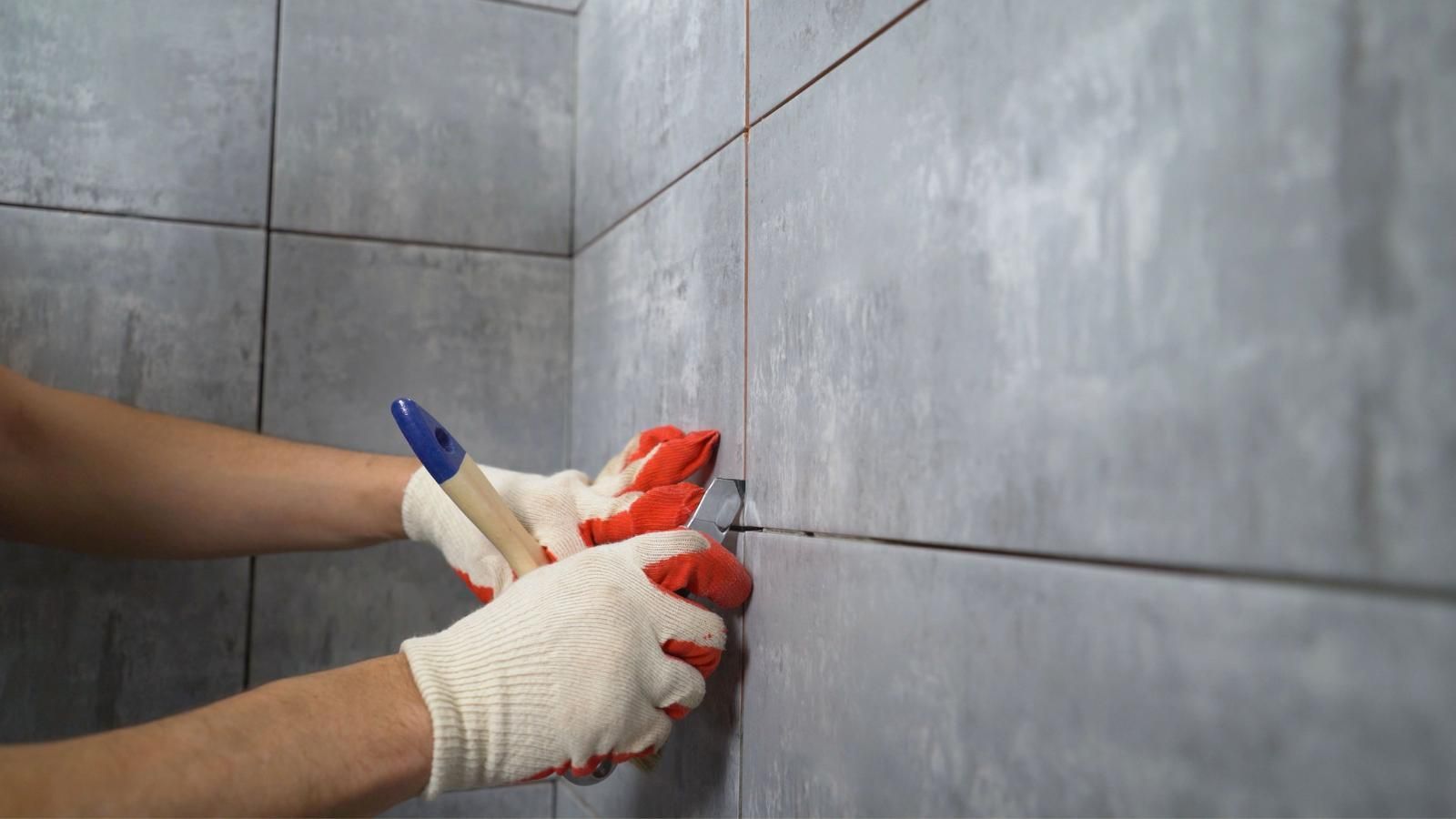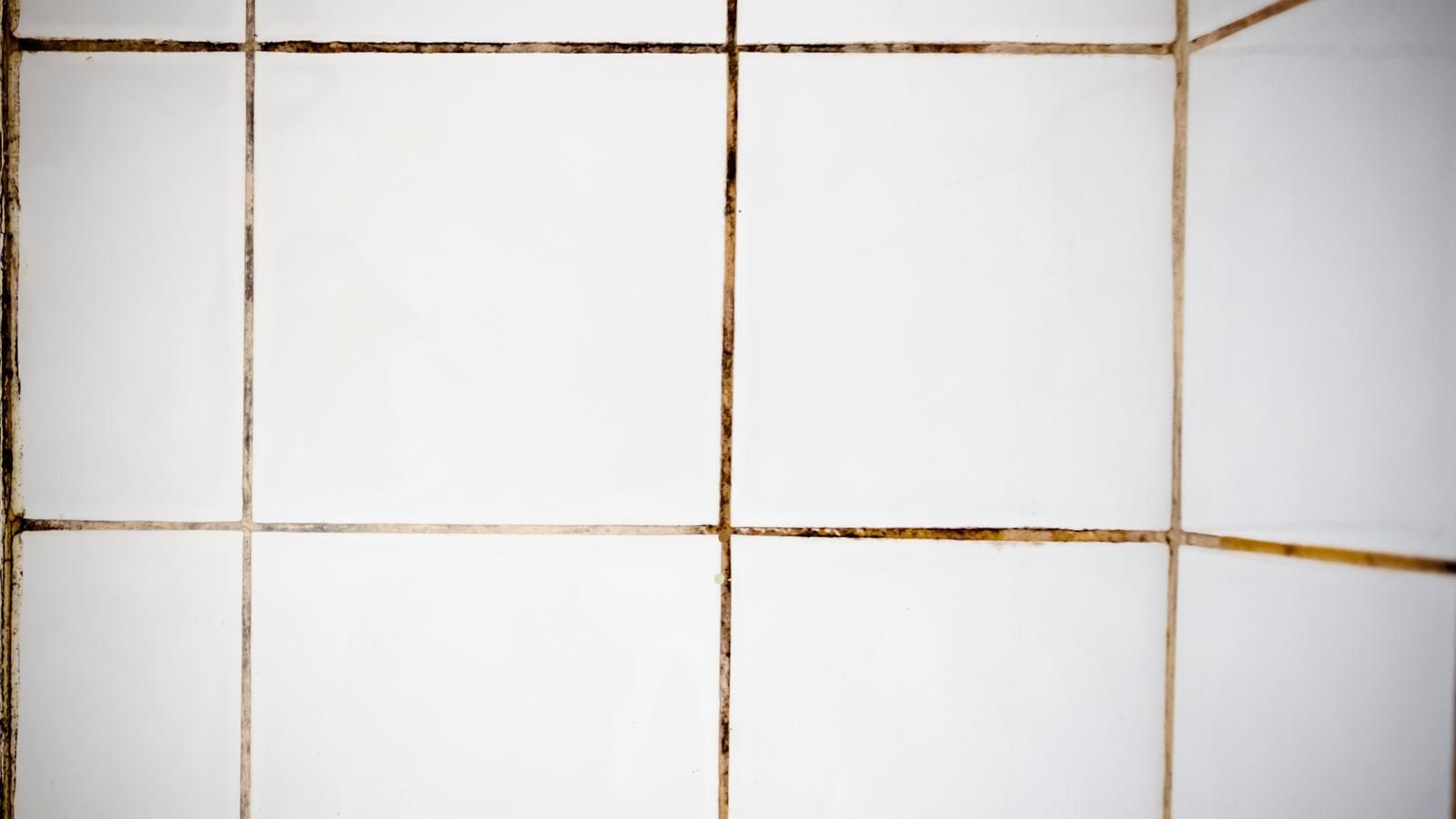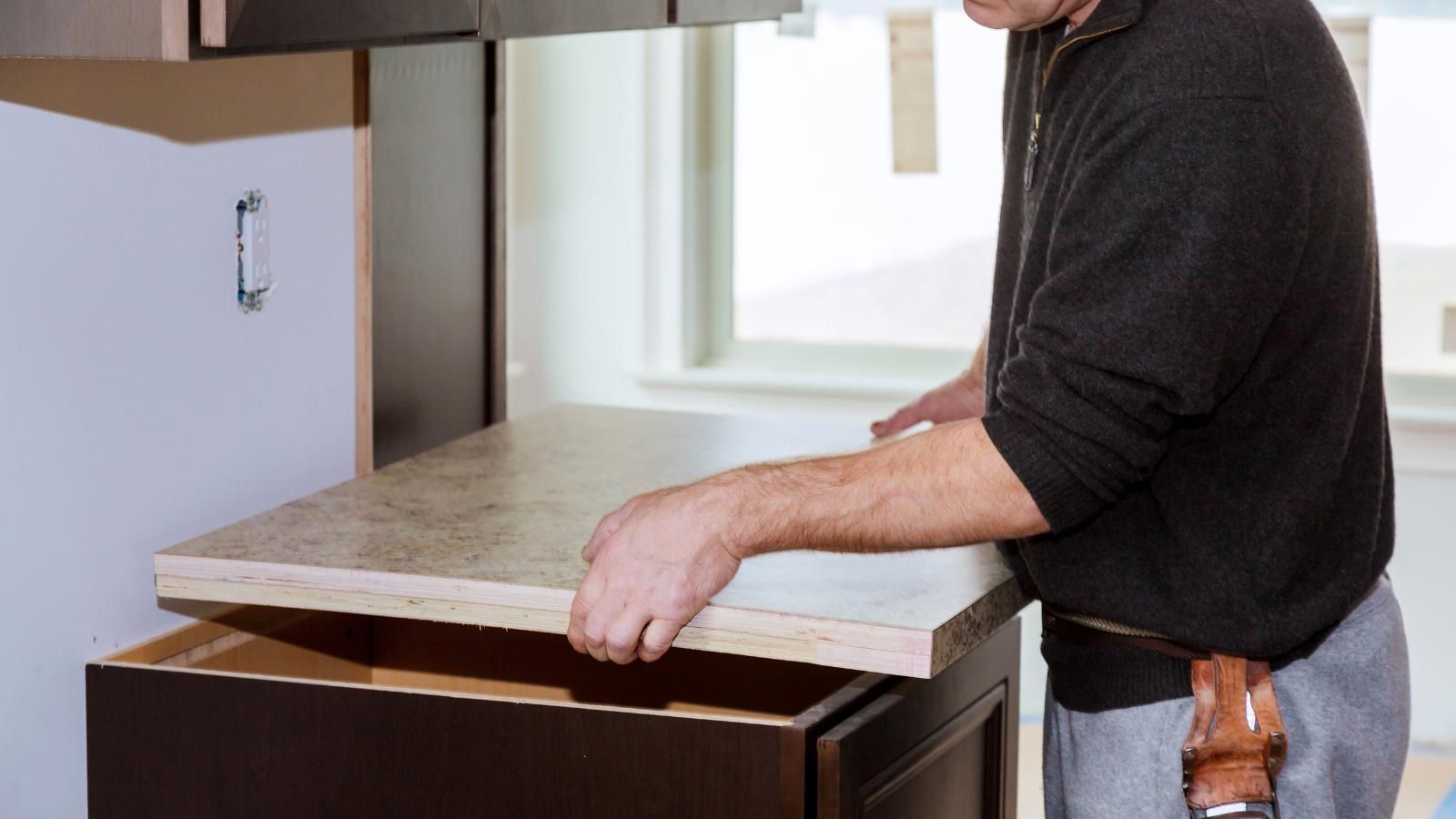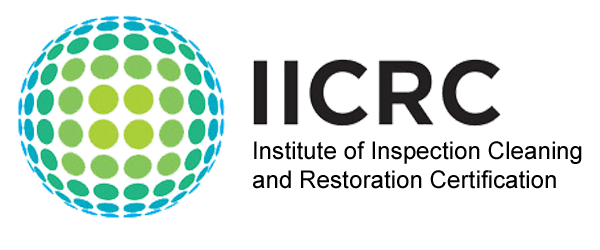The Best Way to Clean Stone Floors and Protect Their Shine
Natural stone floor restoration protects your home’s stunning and valuable floors. Natural stone floors, whether elegant marble or rugged slate, offer timeless beauty and character. But these surfaces can become dull, stained, or permanently damaged with improper care. With the right knowledge and precautions, you can preserve their natural shine and extend the life of your beautiful floors.
In this post, we will cover:
- Why Harsh Products Can Ruin Natural Stone
- Step-by-Step Daily Cleaning Routine
- Deep Cleaning and Grout Care for Natural Stone Tile
- Kitchen Stone Floors—How to Handle High-Traffic Areas
- What NOT To Use When Cleaning Your Stone Floors
Use Gentle Cleaners and the Right Tools for Lasting Shine
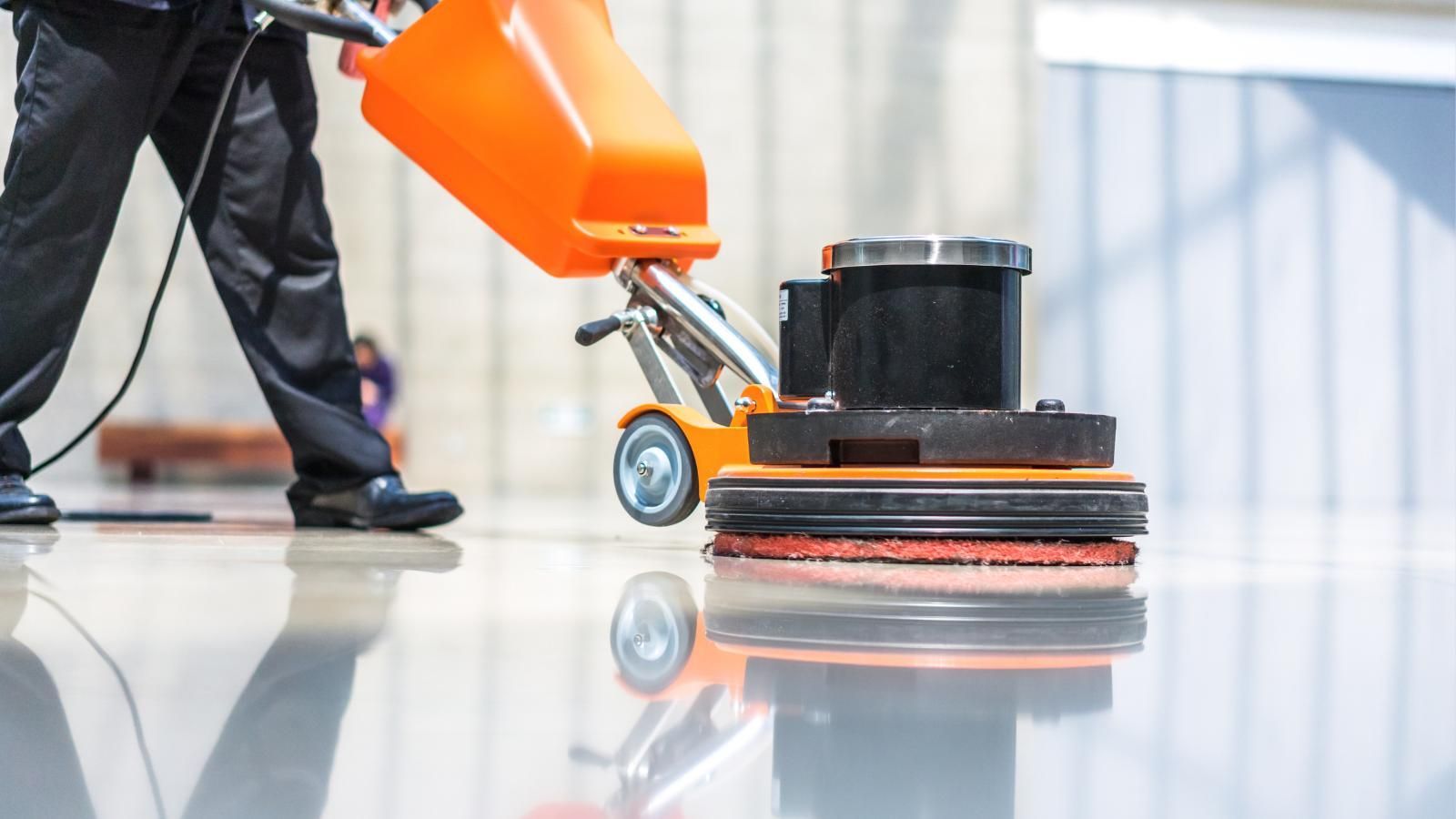
The secret to keeping your natural stone floors beautiful is to use gentle cleaners and the right tools. Stick with neutral pH natural cleaners like specially formulated stone soap, or a few drops of mild dish detergent mixed with warm water. Gentle solutions are effective and won’t harm the stone’s surface or dull its luster. Select soft clothes or non-abrasive mops that will clean without scratching. When using mild dish soap to clean natural stone tile, a little dab will do ya. Too much can cause a streaky film that dulls instead of shines.
Why Harsh Products Can Ruin Natural Stone
Contrary to what you may think, harsh or acidic cleaning products used to clean natural stone floors are not a quick fix; eventually, they will cause permanent damage. Natural ingredients like vinegar or lemon juice are too acidic for cleaning natural stone tile. Abrasive powders and scrubbing creams can scratch and wear down the protective sealant, causing irreversible damage. A natural stone stain can sink deep and become difficult to remove if the sealant has been compromised. Skip the aggressive cleaners when preparing to clean natural stone tile and extend the beauty of your floors.
Step-by-Step Daily Cleaning Routine
Maintaining a consistent routine is the best approach to cleaning natural stone floors without harming their finish.
- Start by dry-dusting or vacuuming with a soft-bristle attachment to remove loose dirt that could scratch the surface.
- Clean natural stone tile with a soft microfiber cloth or a mop dipped in a mild, pH-neutral cleaning solution. Stone floor cleaner products are available at a local hardware store. Avoid harsh chemicals and heavy soap.
- To prevent water marks, especially on a white stone tile floor, immediately dry the surface with a clean towel.
This gentle routine will help preserve your floors’ natural beauty for years.
Deep Cleaning and Grout Care for Natural Stone Tile
Knowing how to clean natural stone tile and grout safely is essential. A dirty grout line will dull the stone's appearance and lead to weakened stone. Gently scrub grout lines with a soft-bristle brush dipped in a pH-neutral stone-safe cleaner. Bleach-based products or steam cleaners can degrade the sealant and loosen grout over time. Warm water and baking soda with a soft brush can remove stubborn stains; just remember to rinse and dry thoroughly.
Kitchen Stone Floors—How to Handle High-Traffic Areas
Now let’s discuss how to clean stone floors in kitchen spaces, as this high-traffic area experiences frequent grease splatters and food drops. Quickly clean spills with a soft, dry cloth and clean kitchen floors daily with a neutral pH cleaner that’s safe for stone. Apply a food-safe
sealant every few months for stain protection. Rugs and mats placed in high-traffic areas, like under sinks and stoves, will catch debris instead of the bare floor. A daily cleaning routine combined with spot cleaning will keep your kitchen stone floors beautiful, even in the busiest of kitchens.
What Should You Avoid When Cleaning Natural Stone?
Knowing what not to do when cleaning stone tile floors is as important as selecting the right products. To maintain the beauty of your natural stone floors, avoid:
- Bleach and harsh chemical cleaners will kill germs, but they will break down natural stone floors and discolor the grout.
- Scouring pads or abrasive tools can easily scratch the floor surface, especially on polished or soft surfaces like limestone and marble.
- Over-wetting the floor can cause moisture to seep into the stone and grout, leading to water spots, mold growth, or permanent stains. Keep your mop damp (not soaking wet) and dry the floors thoroughly after cleaning.
- Completely avoid vinegar for cleaning stone tile floors! True, vinegar is considered a natural multipurpose cleaner, but it is too acidic for cleaning natural stone floors with. Don’t even use diluted vinegar, as it can still damage the protective sealant over time. Stick to pH-neutral cleaners specifically formulated for stone surfaces.
Keep your natural stone floors beautiful for years by avoiding the above-mentioned floor cleaning mistakes.
Keep Your Natural Stone Floors Clean and Radiant
Cleaning natural stone floors is simple; all it takes is choosing the right products, using gentle techniques, and consistent care. Skip the harsh chemicals and use pH-neutral cleaning products with soft tools, and you’ll preserve the beauty and value of your floors for years.
Call
Hemingway’s Floor Cleaning Services when you need professional stone floor care. We proudly serve Myrtle Beach with expert, damage-free solutions that effectively restore the natural shine of your floors safely. Call 843-907-1558

